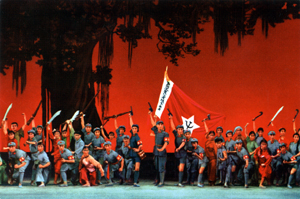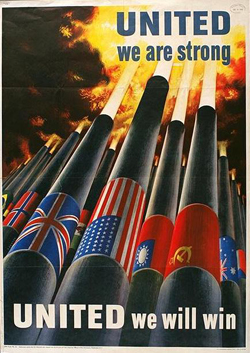Collective
efforts
>>
Propagating
propaganda
During
her years at the U of C, Deborah Levey, AB'73, began accumulating
propaganda from the Chinese Cultural Revolution. "Posters
and sets of postcards," she says, "depicting the few
permissible revolutionary operas and ballets were cheap and colorful-bright
red predominates!-and a few dollars' worth covered many square
feet of plain dorm wall space."

Levey
no longer considers her stuff cheap wallpaper. Rather, her collection's
"iconic" breadth is a source of pride. In addition to
posters and postcards, she has stamps, sheet music, records, paper-cuts,
a subscription to Beijing Review, souvenirs from Radio
China International and Radio Peking, and several texts instructing
their audiences on serving the workers, peasants, and soldiers.
Her most prized items are two articles on the 1976 pro- Chou En-lai
"disturbances" at Tiananmen Square. One, from the July
1976 China Pictorial, calls the event "counter-revolutionary"
and the militia that "smashed" it heroic, while a Dec.
1, 1978, Peking Review article classifies the disturbances
a "completely revolutionary action by the masses." Each
has an illustration with the appropriate revolutionaries being
honored-receiving flowers from, says Levey, "possibly the
same set of glossy children."

Alison
Kent, MBA'91, collects World War II propaganda posters. The first
of her 30 she purchased 17 years ago in Philadelphia. Showing
a long line of soldiers boarding a train, the poster is one of
many admonishing loose-lipped American civilians: "If you
tell where they're going they may never get there. Don't talk
about troop movements." Kent says she loves the "ad
man" stylized art of these posters. "They directed the
population much more than one would think possible," she
notes, "given that they were just sheets of paper."

![]()

